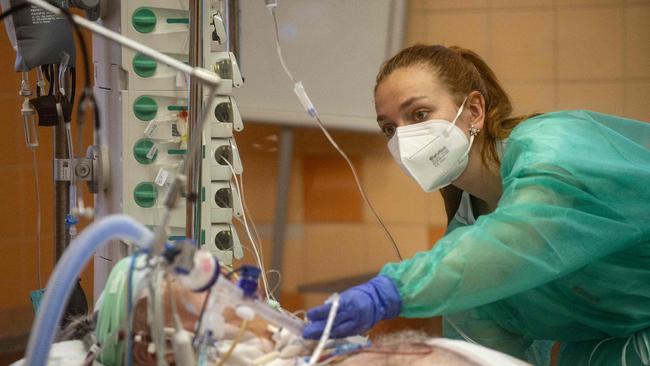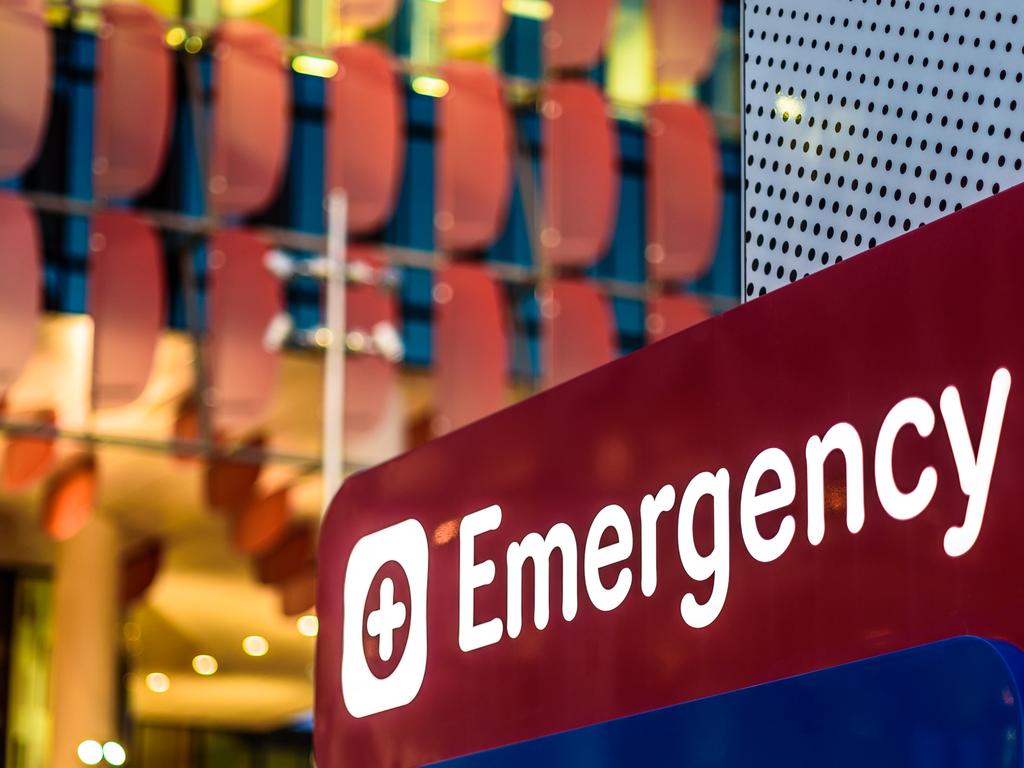Critical overloading in SA set to be replicated nationally amid ‘cocktail of pressures’
Critical overloading that brought the South Australian hospital system to its knees could be soon replicated around the country.

Critical overloading that brought the South Australian hospital system to its knees this week could be replicated around the country as winter flu and Covid spikes fill beds and trigger mass staff illness, with the vulnerable elderly are stuck in wards for weeks and GP clinics no longer able to perform population-wide primary care.
A “cocktail of pressures” forced the cancellation of all but the most urgent category of elective surgery statewide in SA on Friday – the first time a state government has moved to institute a mass suspension of planned surgery outside of pandemic conditions. Every hospital in the state was declared as operating under internal emergency with the elective surgery cancellations required to free up beds for those with flu and Covid-19 amid critical staff shortages, and patients in emergency departments experiencing extraordinarily long wait times.
All Adelaide metropolitan emergency departments were operating at “code white” – or officially over capacity – on Thursday. Most intensive care units were also full.
SA Health chief executive Robyn Lawrence said the elective surgery suspensions had been called due to significant demand on hospitals and threadbare human resourcing. Around 270 staff in metropolitan hospitals were currently off sick with Covid-19 and more than 140 patients were in hospital with Covid-19 and flu, significantly more than this time last year.
Hospitals in other states are also coming under increasing pressure from the triple-threat of influenza, Covid-19, and RSV amid plummeting vaccination rates. NSW this week recorded its highest-ever level of emergency department presentations for the second quarter in a row in what the Australian Medical Association’s NSW president Kathryn Austin labelled a “deeply disturbing trend” and a “catastrophe waiting to happen” as record demand goes unmatched by commensurate state government investment.
NSW has recorded 28,367 flu cases so far this year. In late May cases spiked 27 per cent from the previous week. Queensland had had 14,435 flu cases, while Victoria has recorded 11,713 cases. Those numbers are expected to climb further in coming weeks.
Covid-19 cases also rose by a quarter in NSW in late May.
Flu vaccinations are at the lowest rates nationwide in five years, according to the National Centre of Immunisation Research and Surveillance. This time last year almost 60 per cent over 65s had had a flu vax.
The Federal AMA’s president Steve Robson said the pressures on South Australia were mirrored in other states.
“If we look around the country, exactly the same pressures are facing every state in an environment where we have the lowest vaccination rates for a number of years now – less than half of older Australians getting a flu vaccination.
“So I think the country should look to what’s happening South Australia and its health system as a warning that this is probably not far away for other states and territories.”
Professor Robson said “huge workforce pressures” that had been triggered by the pandemic were now coming to bear upon the hospital system, with high numbers of resignations or people choosing to work reduced hours, and difficulty recruiting.
“That means that when you have a workforce affected by Covid and flu themselves in a wave of infection, there’s no reserve force to call upon. At the same time the reduction in availability of general practice visits and affordability of GPs means that vulnerable people often have no option but to either to get sick, or to go to emergency. So the capacity of primary care to actually head off a lot of hospital admissions has also been reduced.
Many elderly people whose health needs meant they couldn’t be cared for in aged care – but who shouldn’t really be in hospital – were also stuck on wards.
“So this cocktail of pressures is really coming together and it makes health systems so vulnerable to these acute shocks,” Professor Robson said. “What’s happening in South Australia is a microcosm of the forces we’re seeing in other states and territories and I think we really need to take this as a warning and look urgently at how we can build in a bit of resilience into health systems, because if the only lever governments have is stopping planned surgery, that’s a very blunt instrument.”







To join the conversation, please log in. Don't have an account? Register
Join the conversation, you are commenting as Logout